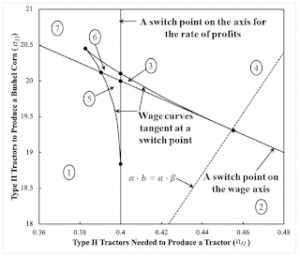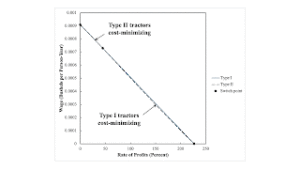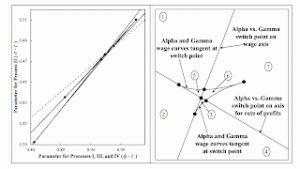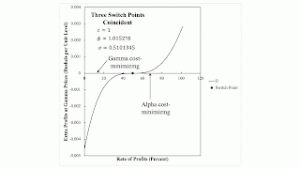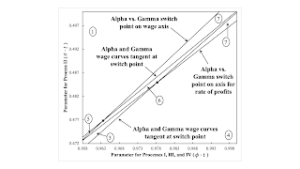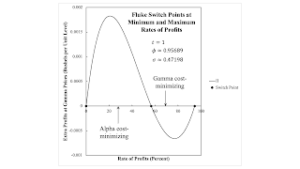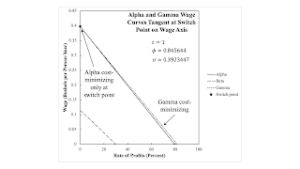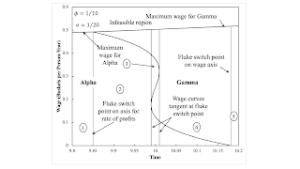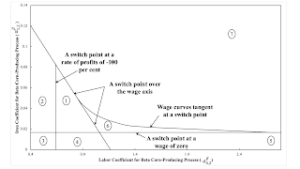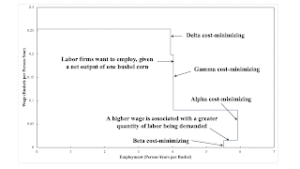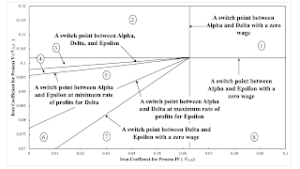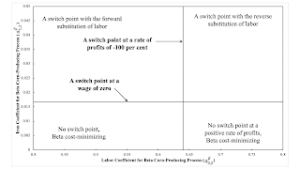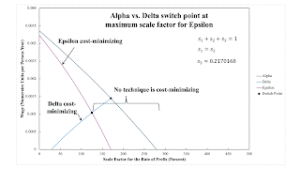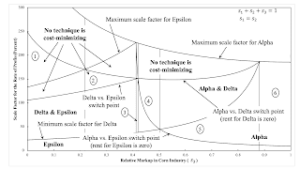Table 1: Lower Rate of Profits around a Switch Point
Tradional Marginalist Story’Perverse’ Marginalist Story
Traditional Austrian StoryGreater net output per workerSmaller net output per worker
More roundabout techniqueMore roundabout technique
Switch pt. in region 2, 1st in region 52nd switch point in region 3, 2nd in region 6
‘Perverse’ Austrian StoryGreater net output per workerSmaller net output per worker
Less roundabout techniqueLess roundabout technique
1st in region 3, 1st and 3rd in region 6, switch point in region 72nd switch point in region 5
My examination
of triple-switching
in the corn-tractor model allows for
drawing some conclusions about Austrian capital theory.
The corn-tractor model, like the Samuelson-Garegnani model, is useful for investigating certain
aspects of

